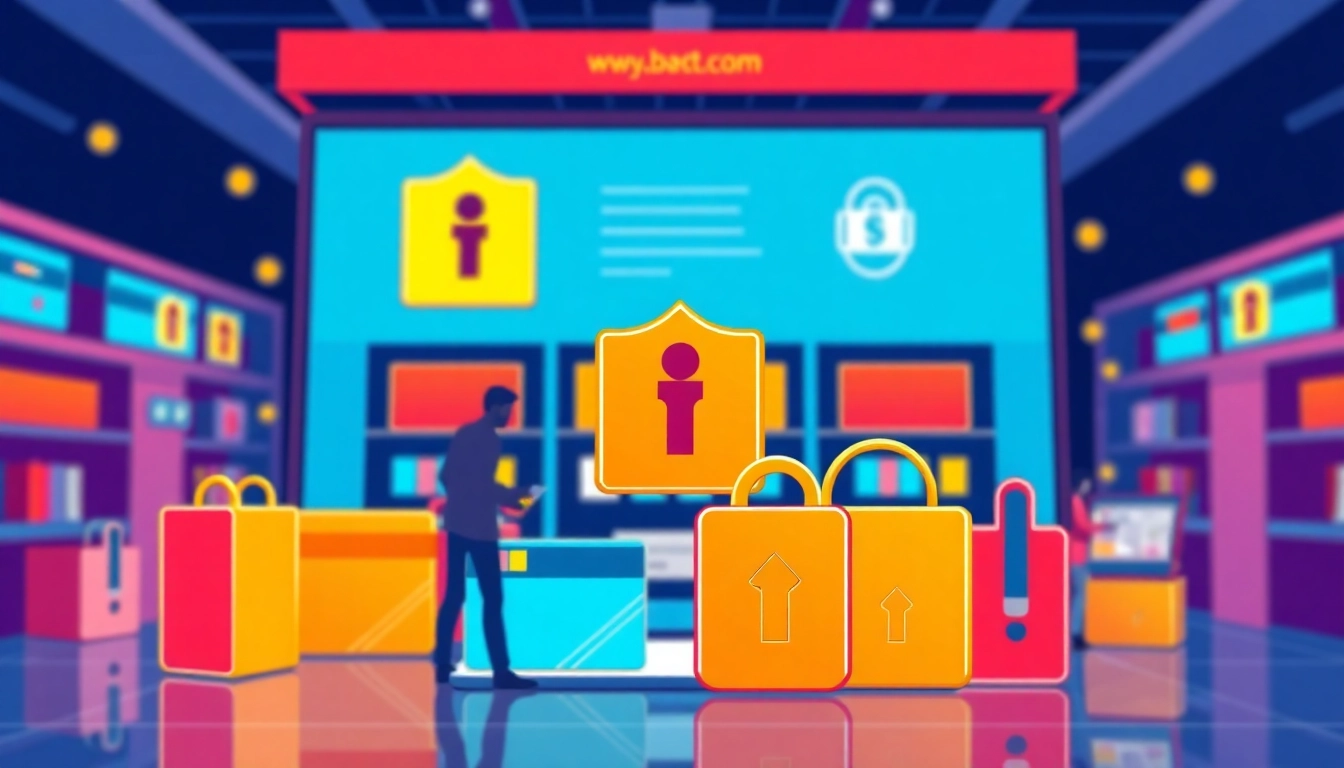Understanding the Basics of CVV in Online Shopping
What is CVV and Why is it Important?
Card Verification Value (CVV) is a three- or four-digit numerical code found on credit and debit cards. This security feature is critical for online transactions, serving as an additional safeguard to prevent unauthorized use of card information. When you make purchases online, retailers may ask for your CVV, along with your card number and expiration date, to ensure that the person making the purchase has physical possession of the card.
The importance of CVV cannot be overstated, especially in today’s digital economy where online shopping is a norm. It adds a layer of security that enhances consumer trust and reduces the risk of fraud. By requiring this code, merchants can verify that the cardholder is indeed the one making the purchase, which is essential for both the buyer’s and the merchant’s safety.
The Role of Ultimateshop CVV in Secure Transactions
When shopping with sites like Ultimateshop cvv, it becomes particularly important to understand how CVV helps in securing transactions. The Ultimateshop CVV is designed to facilitate safe online purchases by incorporating the CVV code into its transactions. This ensures that your personal and financial information is transmitted securely, reducing the chances of it being intercepted by fraudulent entities.
Furthermore, using the CVV helps Ultimateshop comply with industry standards such as the Payment Card Industry Data Security Standard (PCI DSS), which mandates that all merchants maintain a secure environment for processing card transactions. This means that when you enter your CVV at Ultimateshop, you are not just engaging in a transaction; you are also participating in a broader effort to enhance online security across the web.
Common Misconceptions About CVV Use
Despite its significance, there are several misconceptions surrounding CVV usage. One common myth is that providing a CVV guarantees the transaction’s security. While it enhances safety, it does not alone protect against all types of fraud. Cybercriminals have become increasingly sophisticated, and they may employ techniques such as phishing or malware to capture more than just the CVV.
Another misconception is that the CVV code is required for all transactions. While it is commonly requested for online purchases, some merchants may not ask for it, especially for recurring billing. Moreover, some consumers believe that once they share their CVV, they can shop indiscriminately without any further precautions. This could not be further from the truth, as ongoing vigilance is essential for maintaining online safety.
How to Safely Use Ultimateshop CVV
Steps for Securely Entering Your CVV
To ensure your Ultimateshop CVV transactions remain secure, follow these critical steps:
- Secure Your Device: Before entering any sensitive information, ensure that your device is secure. This includes having updated antivirus software and using a secure Wi-Fi connection.
- Check the Website’s Security: Make sure the Ultimateshop website is secure. Look for “https://” in the URL and a padlock icon in the address bar.
- Type, Don’t Copy: Manually type your CVV into the payment form instead of copying it from another document, as this can prevent malware from capturing your information.
- Confirm Before Submitting: Before hitting the submit button, double-check that all details are correct. This includes the CVV, card number, and billing address.
Recognizing Secure Shopping Environments
Identifying secure shopping environments is key to protecting your CVV. Here are some indicators:
- SSL Certificates: Websites that secure data with SSL encryption will show as “https://”, and they may have a padlock sign next to the URL.
- Privacy Policy: Reputable online retailers, such as Ultimateshop, will provide a transparent privacy policy explaining how they handle personal and payment information.
- Trust Seals: Look for trust seals from recognized security companies on the checkout page, which can assure shoppers that their transaction will be secure.
Best Practices for Online Transactions
To enhance safety when conducting transactions, consider the following best practices:
- Use strong and unique passwords for online accounts.
- Enable two-factor authentication (2FA) on your accounts whenever possible.
- Regularly monitor your bank statements for unauthorized transactions.
- Sign up for alerts from your bank regarding spending and unusual activities on your account.
- Utilize virtual cards for online transactions when available to minimize exposing your actual card details.
Potential Risks Associated with Ultimateshop CVV
Fraudulent Activities and How to Avoid Them
Despite the security measures provided by Ultimateshop CVV, fraudulent activities remain a risk. Common types of fraud include:
- Phishing: Fraudsters may attempt to trick you into revealing your CVV through fake emails or websites that appear legitimate.
- Skimming: Physical skimmers can capture your card information, including the CVV, when you use your card at point-of-sale systems.
- Data Breaches: Cyber attacks targeting retailers’ databases can expose your card information, including your CVV.
To avoid falling victim to these scams, always exercise caution when entering your CVV and other payment data. Educating yourself about potential threats and remaining vigilant can significantly reduce your risk.
Signs Your CVV May Be Compromised
It is essential to recognize the warning signs that your CVV or other card information may have been compromised. Be vigilant for these indicators:
- Unrecognizable transactions on your bank statement.
- Receiving unsolicited alerts about suspicious accounting activities.
- Being asked for your CVV information in ways that feel unusual, such as through unsolicited phone calls.
What to Do If You Experience Fraud
If you suspect that your CVV has been compromised, it is crucial to act quickly:
- Contact Your Bank: Immediately notify your financial institution to report fraudulent activity.
- Change Your Passwords: Update passwords for your online banking and shopping accounts.
- Monitor Your Account: Keep a close eye on your accounts for any unauthorized transactions.
- Consider Fraud Alerts: Place a fraud alert on your credit report to help protect against identity theft.
Enhancing Your Online Shopping Security
Utilizing Two-Factor Authentication with Ultimateshop CVV
Two-factor authentication (2FA) is a key method to enhance the security of your Ultimateshop CVV transactions. With 2FA, even if a fraudster somehow obtains your login information, they cannot access your account without the second factor, which is typically a code sent to your mobile device or email.
Many services, including Ultimateshop, offer this feature. Activating 2FA not only protects your account but also instills confidence in your online shopping experience.
Understanding Encryption and Data Protection
Encryption plays a vital role in protecting your CVV and other sensitive information during transactions. When you enter your CVV at Ultimateshop, your data is encrypted, making it unreadable to anyone who might intercept it during transmission. This ensures that even if a hacker were to try to steal that information, they would not be able to make sense of it without the necessary decryption key.
Such data protection measures help maintain the integrity of your transactions and the confidentiality of your personal information.
Choosing Reliable Payment Processors
Selecting trustworthy payment processors is vital when shopping online. Well-known services typically provide additional fraud protection and security features. Always ensure that the payment method you use on Ultimateshop and other sites is reputable, as these processors often employ the latest in security technology to keep your information safe.
Staying Informed on Online Security Trends
Recent Innovations in Payment Security
Payment security is an ever-evolving field, with innovations continually emerging to counteract fraud and cyber threats. One notable trend is the rising use of biometric authentication methods, such as fingerprint and facial recognition technologies, which add another layer of security to transactions.
Additionally, the introduction of tokenization replaces sensitive information with a non-sensitive equivalent, or “token,” which can be used in place of CVV without exposing the actual data. This technology significantly reduces the risk of data breaches.
The Future of Online Payment Methods
The future of online payments looks promising, with advancements aiming to create a more secure yet convenient shopping experience. Methods such as digital wallets, cryptocurrencies, and NFC payments are gaining traction.
Furthermore, as consumer awareness increases, online safety is expected to improve. Businesses will likely adopt stricter security protocols, and technologies will continue to adapt to counteract fraud more effectively.
Helpful Resources for Staying Safe Online
Staying informed about online security is crucial for protecting your finances. Here are some helpful resources:
- The Federal Trade Commission’s website, which offers advice about identity theft and online scams.
- Cybersecurity & Infrastructure Security Agency (CISA), providing updates on the latest security vulnerabilities and practices.
- Consumer Financial Protection Bureau (CFPB), where you can find helpful information about managing your finances and protecting yourself online.




